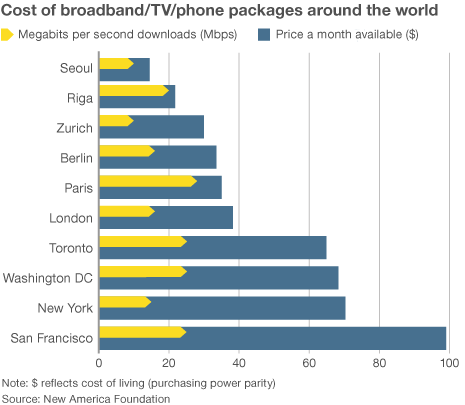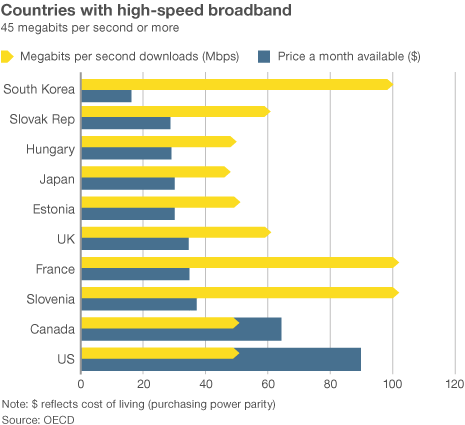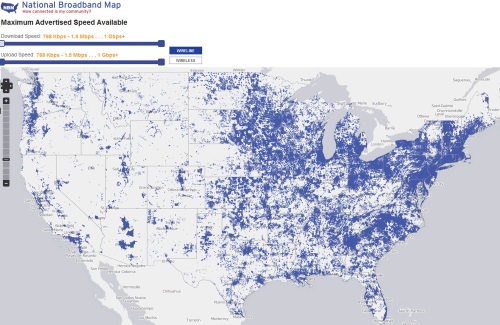While America is often seen — or at least, it sees itself — as standing at the forefront of technological development, a report by the New America Foundation indicates the country ranks last among developed countries when it comes to price and performance of one of the more common technologies available today — broadband Internet access.

Here’s a chart the group released which shows broadband / TV / phone packages of some of the major cities around the world, and how they compare to three major American cities:

When it comes to packages that offer broadband at lower to mid download speeds, the average user is paying:
San Francisco: $99
New York: $70
Washington DC: $68
London: $38
Paris: $35
Seoul: $15
Here’s how the same data compares on a country-wide average.

The obvious question here is “Why?” The answer is none-too-surprising: big business. You see, the reason Americans pay close to $100 a month (nearly twice as much as everyone else) is because providers hold local monopolies over different areas of the country. The U.S. is a big piece of land and while there are a handful of national deregulated providers, they still dominate the regions they’re strongest in.

“Americans pay so much because they don't have a choice,” Susan Crawford, a former special assistant to President Barack Obama on science, technology and innovation policy, told the BBC in an interview. “We deregulated high-speed Internet access 10 years ago and since then we've seen enormous consolidation and monopolies, so left to their own devices, companies that supply Internet access will charge high prices, because they face neither competition nor oversight.”
The result: U.S. customers must choose between just one or two companies if they want reasonable service. And if they want a faster Internet experience, they’ll be charged more for that convenience.
Story via: bbc.co.uk
Advertisement
Learn more about Electronic Products Magazine





